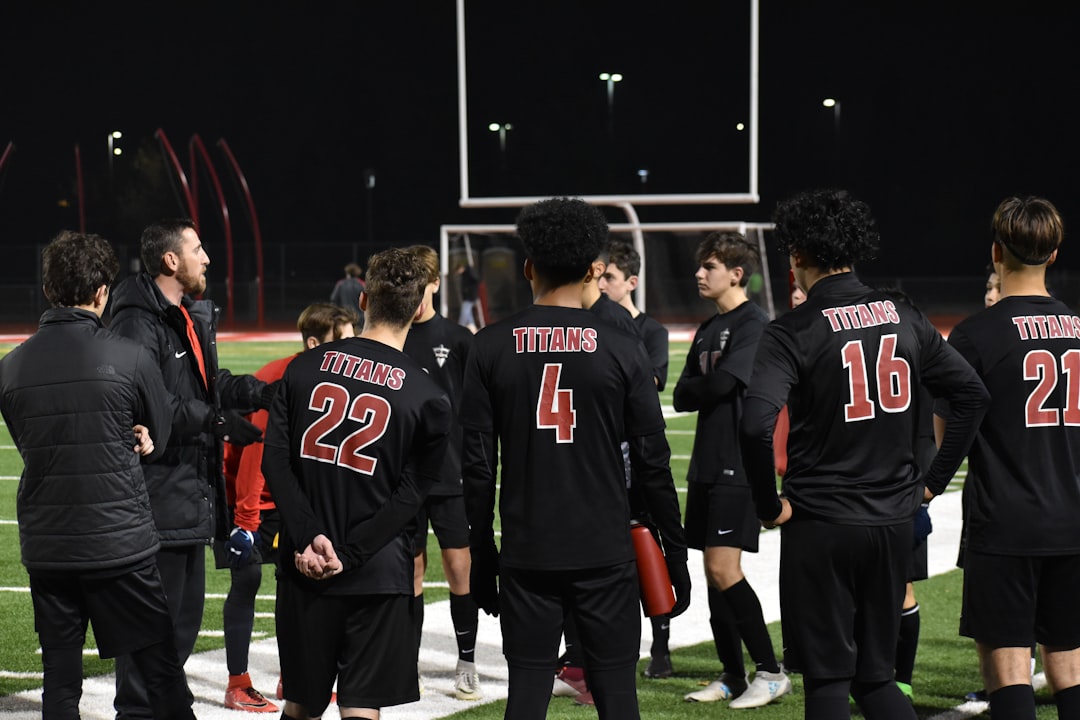Do Youth Coaches Strive To Get Better Similar To What We Ask Of Our Athletes?
Should a coach work on improving ? What should they improve? Combining emotional intelligence with teaching the skills of the game may be the secret sauce.
Welcome to edition 168 of The Physical Movement. This week we look at the role of continuous improvement in coaching competency. Thanks for spending some time with us.
Coaches, that lack of effort you see on the field, the attention to detail you witness, that lack of confidence that you see in your athletes at crucial times and the demeanor of your athletes are often a mirror image of your coaching style.
While we coach youth sport with the best of intentions, the process of self improvement is not easy or comfortable, yet it is critical in breathing life into the experience for those we serve. Over my 30+ years as a coach and a parent I have witnessed so many coaching styles.

There is the disciplinarian. Very strict with athletes but lacks the human touch. Sets the standards of what is expected but often very hard on the players. Young athletes are more than a little bit scared of this coach, and often want to do all they can to stay in the disciplinarian’s good books.
There is the enthusiastic coach who yells a lot. Very animated, good with the pre-competition rah rah speech. Very vocal , at time too much so, with the officials and that often gets him in trouble.
There is the X’s and O’s coach. Strategically sound, this coach focuses mapping out plays and strategies.
There is the soft coach who does not like direct conversation for fear of confrontation. This coach wants to be everyone’s friend, and tends to create a lot of damage by not being direct or honest on the athletes role on the team.
The communicator coach who lets the athlete know what their role will be, how they can contribute to overall team success, and where they can improve requires high emotional intelligence, strong knowledge of the skills that are required to excel in the game and the ability to tie all this together.
Emotional intelligence.
“The capacity to be aware of, control, and express one’s emotions, and to handle interpersonal relationships judiciously and empathetically” Oxford Dictionaries.
If you asked your son/daughter who was the best coach for whom they have played, would they not describe someone who exhibited high emotional intelligence? Conversely, the terrible experience where confidence was lost by your child, would that coach be the opposite and show low emotional intelligence?
Daniel Goleman identified 5 essential elements of emotional intelligence:
Emotional self-awareness — knowing what one is feeling at any given time and understanding the impact those moods have on others.
Self-regulation — controlling or redirecting one’s emotions; anticipating consequences before acting on impulse.
Motivation — utilizing emotional factors to achieve goals, enjoy the learning process and persevere in the face of obstacles.
Empathy — sensing the emotions of others
Social skills — managing relationships, inspiring others and inducing desired responses from them.
Teaching the skills of the game
At a young age, the youth coach has an important role in teaching the skills of the game. This is where many youth sport organizations put their focus in coaching development and rightly so.
With the shortage of coaches comes a shortage of skill development. The well-meaning coach relies on teaching cues of “try harder”, when in fact improving the teaching of technical skills would have a much greater impact on the experience.
These 5 essential elements combined with effectively teaching the skills required in competition become the foundation of a positive experience.
Let’s back up and work through this concept.
The coach who is in tune with emotions and moods of the moment, is able to resist the temptation to act impulsively, can effectively communicate through obstacles, is compassionate to the athlete and family perspective, and is an effective communicator will be an effective coach.
If we have been around youth sport long enough, we can think of examples where 1 or more of these have been out of whack. That imbalance most often diminishes the quality of the experience.
Continuous improvement by coaches in these areas should be the standard, yes? just like players are continually evaluated and asked to improve their skills?
This requires the coach to have a high level of self esteem and sense of self.
A coach who inspires players and allows for open communication, is able to challenge players without threatening or demeaning them, can build confidence in their athletes is a coach that has the foundation for creating life changing experiences.
Organizations: We can hire for this. We can teach these skills. It is all about where the standards are set and what we will accept in leading our youth.


